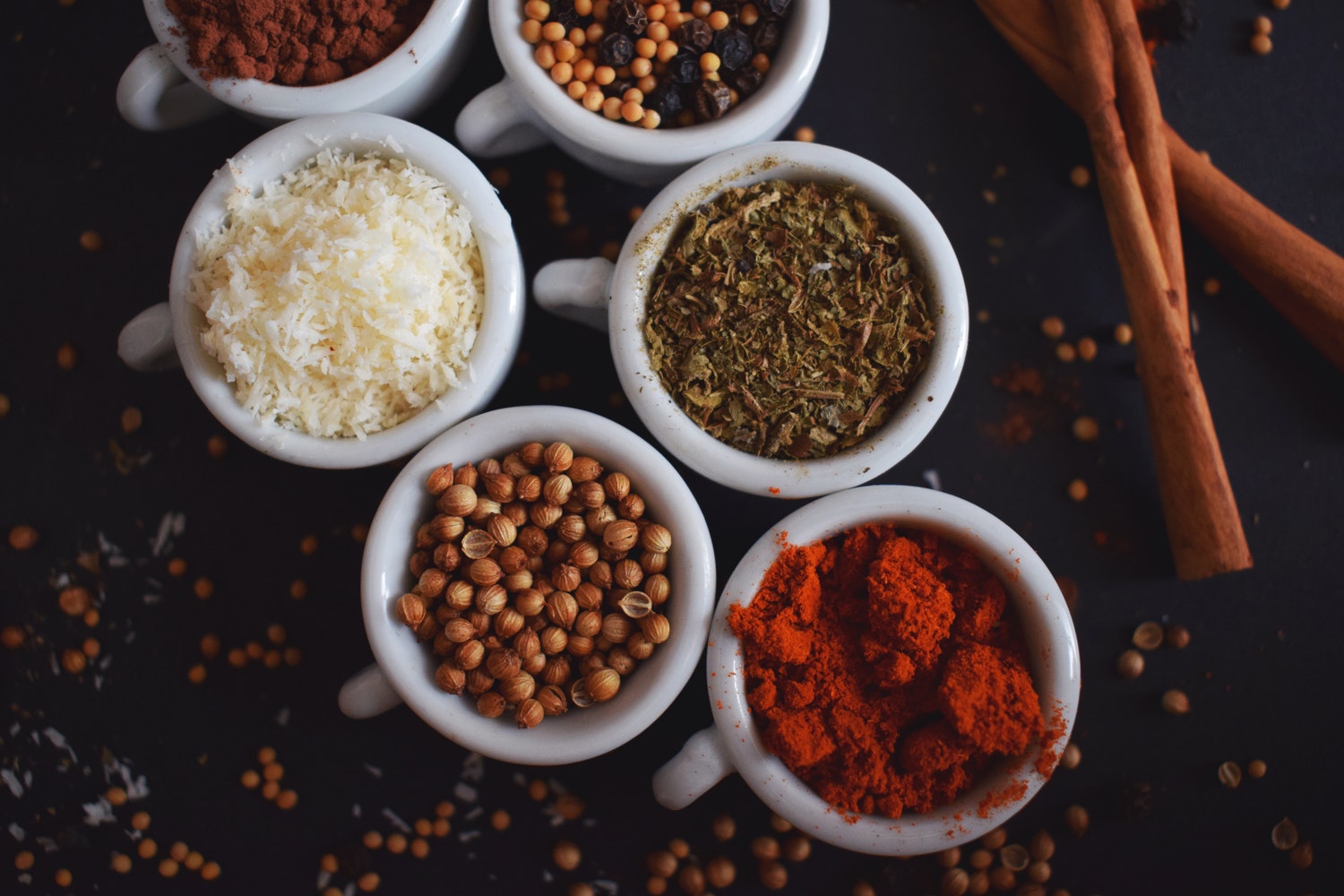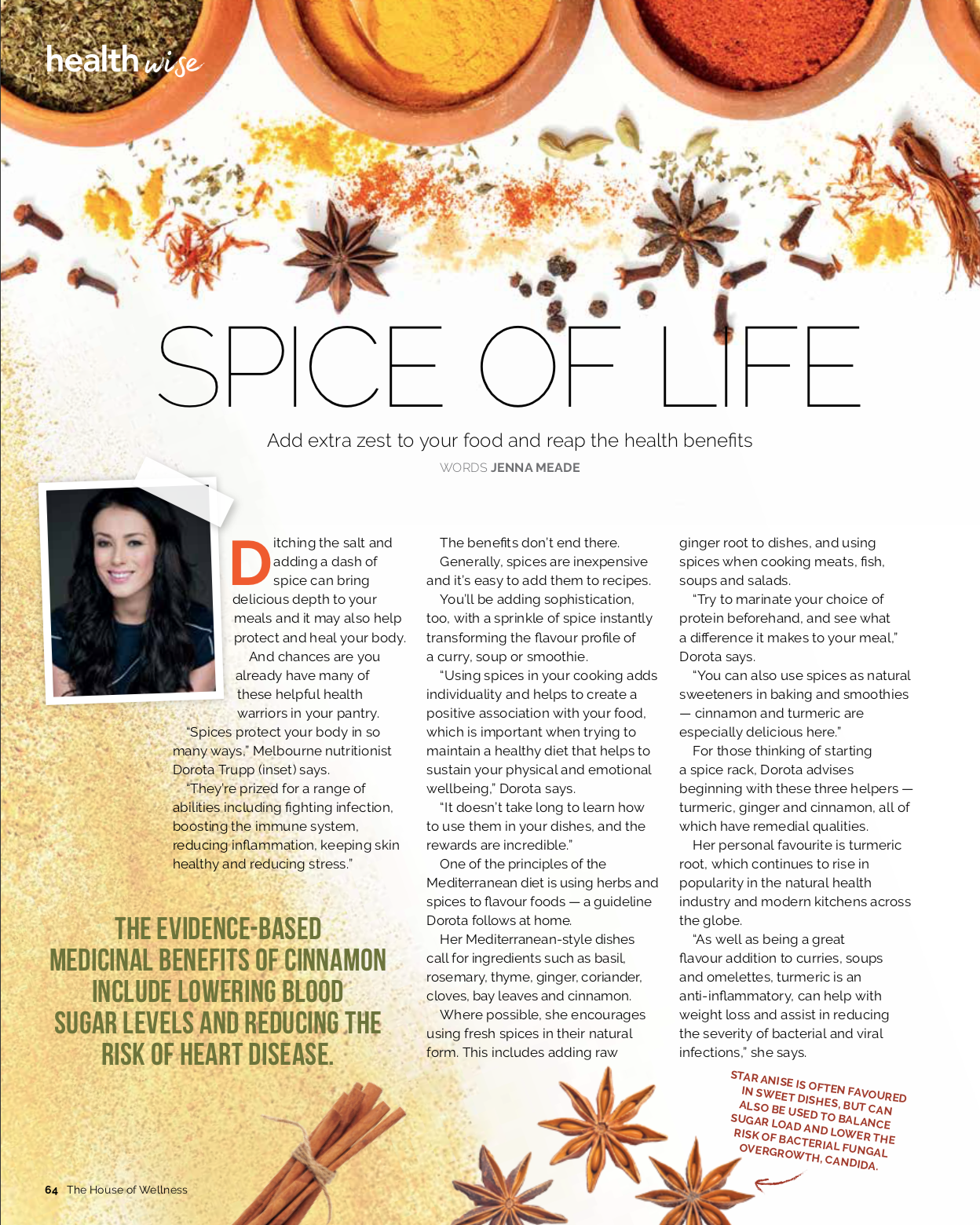Add extra zest to your food and reap the health benefits.
Ditching the salt and adding a dash of spice can bring delicious depth to your meals — and it may also help protect and heal your body.
And chances are you already have many of these helpful health warriors in your pantry.
“Spices protect your body in so many ways,” Melbourne nutritionist Dorota Trupp says.
“They’re prized for a range of abilities including fighting infection, boosting the immune system, reducing inflammation, keeping skin healthy and reducing stress.”
The benefits don’t end there. Generally, spices are inexpensive and it’s easy to add them to recipes. You’ll be adding sophistication, too, with a sprinkle of spice instantly transforming the flavour profile of a curry, soup or smoothie.
“Using spices in your cooking adds individuality and helps to create a positive association with your food, which is important when trying to maintain a healthy diet that helps to sustain your physical and emotional wellbeing,” Dorota says. “It doesn’t take long to learn how to use them in your dishes, and the rewards are incredible.”
One of the principles of the Mediterranean diet is using herbs and spices to flavour foods — a guideline Dorota follows at home.
Her Mediterranean-style dishes call for ingredients such as basil, rosemary, thyme, ginger, coriander, cloves, bay leaves and cinnamon.
Where possible, she encourages using fresh spices in their natural form. This includes adding raw ginger root to dishes, and using spices when cooking meats, fish, soups and salads.
“Try to marinate your choice of protein beforehand, and see what a difference it makes to your meal,” Dorota says. “You can also use spices as natural sweeteners in baking and smoothies — cinnamon and turmeric are especially delicious here.”
For those thinking of starting a spice rack, Dorota advises beginning with these three helpers — turmeric, ginger and cinnamon, all of which have remedial qualities.
Her personal favourite is turmeric root, which continues to rise in popularity in the natural health industry and modern kitchens across the globe.
“As well as being a great flavour addition to curries, soups and omelettes, turmeric is an anti-inflammatory, can help with weight loss and assist in reducing the severity of bacterial and viral infections,” she says.
Hidden benefits
Pack a punch: Cumin is packed with iron. One teaspoon makes up 15 per cent of your recommended daily intake, while also helping with digestion.
Rest assured: Nutmeg has a calming effect and is often used to treat mild insomnia. Add a pinch to a glass of warm milk and drink an hour before bedtime.
Hot stuff: Store fresh ginger in the fridge for up to three weeks. Slice or grate the natural anti-inflammatory for teas, smoothies and stir-fries.
See stars: Star anise is often favoured in sweet dishes, but can also be used to balance sugar load and lower the risk of bacterial fungal overgrowth, candida.

